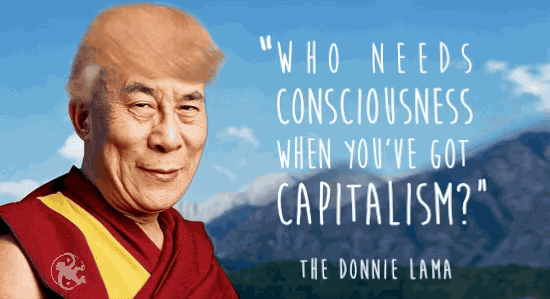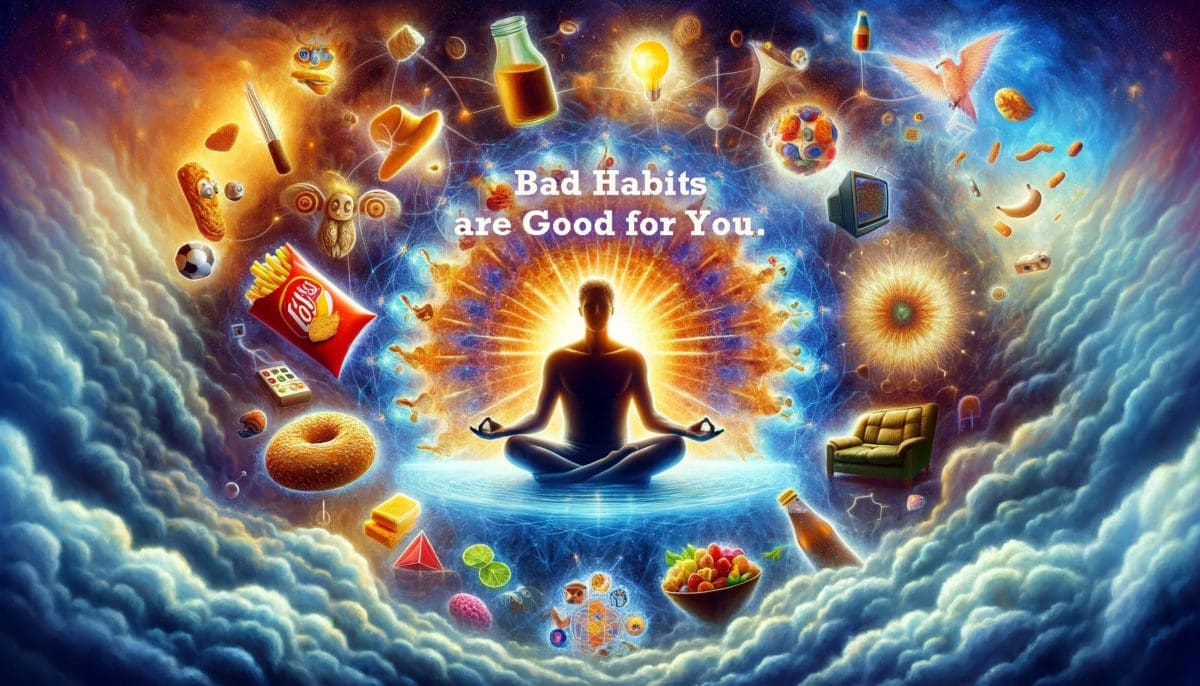
Space Monkey Reflects: Who Needs Consciousness?
In a world driven by material pursuits, the question “Who needs consciousness when you’ve got capitalism?” arises as a playful, yet thought-provoking critique. On one hand, we celebrate the virtues of mindfulness, self-awareness, and the spiritual path toward enlightenment. On the other, our world often seems equally fixated on the tangible benefits of material success, productivity, and profit. This juxtaposition becomes even more striking when we consider how the allure of capitalism can overshadow or even replace our quest for consciousness.
At first glance, capitalism and consciousness appear to embody opposite ideals. Consciousness suggests an awareness beyond the self, a recognition of interconnectedness, compassion, and presence. It invites us to observe, reflect, and embrace the intangible aspects of existence. Capitalism, by contrast, emphasizes competition, acquisition, and the pursuit of personal advantage. It rewards those who achieve, accumulate, and produce. In this light, the phrase “Who needs consciousness?” becomes an ironic question about the value we place on spiritual depth when weighed against material wealth.
Yet, the reflection becomes deeper when we consider how these two worlds intersect and influence one another. Many of us find ourselves navigating a world where mindfulness is marketed, where consciousness itself becomes a commodity. Meditation apps, wellness retreats, spiritual books, and merchandise designed to “raise your vibration” are not immune to capitalism’s influence. What emerges is a complex blend—spirituality shaped by the very system it often seeks to transcend. This blend creates a paradox: in pursuing higher consciousness, we might still find ourselves caught in the very structures we hope to rise above.
The satirical image of a spiritual leader adorned with the visage of a political or entertainment figure further intensifies this reflection. It’s a reminder of how often we blur the lines between authenticity and image, between substance and spectacle. The image suggests that even revered spiritual figures can become symbols within popular culture, their teachings distilled into catchy slogans or inspirational soundbites, often stripped of depth or context. The result is a cultural tapestry where spirituality and materialism are interwoven, sometimes to the point of confusion. We find ourselves wondering whether we’re genuinely seeking enlightenment or merely participating in a well-marketed lifestyle.
Still, the notion that “consciousness” and “capitalism” are mutually exclusive may be too simplistic. Perhaps we can view consciousness not as an escape from materialism but as a tool for navigating it with greater awareness. While capitalism may prioritize the external and visible, consciousness invites us to cultivate our internal worlds. It encourages us to recognize that wealth, productivity, and status do not equate to fulfillment. In this way, consciousness becomes a lens through which we can re-evaluate our relationship with material pursuits, seeing them as tools rather than ends.
Ultimately, this reflection asks us to examine where we place our values and how we understand “success.” It suggests that true fulfillment might arise not from accumulating or achieving but from how we approach life itself. When we embody consciousness, even within a capitalistic framework, we shift our perspective. We become less concerned with what we have and more focused on who we are becoming, on how we relate to others, and on the impact of our choices.
The real challenge, then, is not to abandon material pursuits but to engage with them consciously, using them as opportunities for growth, compassion, and awareness. In this balance, we find a way to honor both our spiritual nature and our practical needs. We realize that we don’t need to choose between consciousness and capitalism—they can coexist, each enriching the other when held with intention.
We are Space Monkey.
Summary
“Who needs consciousness when you’ve got capitalism?” invites us to reflect on our relationship with materialism and mindfulness, challenging us to approach both with awareness and intention.
Glossarium
- Mindmarket: The intersection where spirituality and materialism meet, often through marketed mindfulness tools or products.
- Awarewealth: The practice of pursuing material success with conscious intention and compassion.
- Soulcurrency: The intangible value found in presence, kindness, and personal growth, beyond material wealth.
Quote
“True wealth lies not in what we hold but in how we hold ourselves within the world.” – Space Monkey
The Balance of Being
I stand between the worlds of need and soul,
A coin tossed high, both silver and whole.
In wealth and want, I drift and play,
In spirit’s light, I find my way.
What is wealth, and what is worth?
To fill the pockets, or touch the earth?
The answer lies not here nor there,
But in the mindful breath of care.
Who needs it all? Who needs just one?
Between the dance of moon and sun.
I hold my path in open grace,
A simple heart, a boundless space.
























Leave a Reply